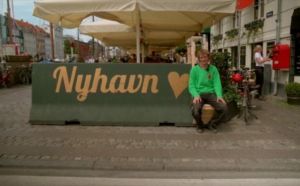News
Local News in Brief: Christmas markets protecting themselves against terror
This article is more than 8 years old.
Elsewhere, pollutants in the harbour and mayor wants EU to look at foreign homeless issue

More barriers out at Christmas markets (photo: Tag Tomat)
On December 19 last year, a truck ploughed into a Christmas market in Berlin in an act of terror that killed 12 people and wounded almost 50. As Christmas approaches a year on, the tragedy still weighs heavily on Copenhagen.
This year, concrete blocks have been set up at Christmas markets in Copenhagen and security guards have been hired to keep an eye on the yuletide proceedings.
“It’s a result of the occurrence in Berlin last year and it leads us to believe that the same can happen in Denmark,” Jesper Bangsgaard, a deputy police inspector with the Copenhagen Police, told DR Nyheder.
“We enter into a dialogue with the organisers about how to secure the Christmas market and then offer recommendations about what they can do. It’s the organisers who pay for the security.”
According to Carsten Laustsen, an associate professor specialising in terrorism at Aarhus University, the risk of a terror attack at a Danish Christmas market is small.
READ MORE: Copenhagen to replace terror barriers with trees
Docking ships a major contributor to pollution
According to a new report from the ecological council, Det Økologiske Råd, on days with easterly winds there is more pollution emanating from the ships docked at Langelinie than there is on the busiest road in Copenhagen, HC Andersens Boulevard. Det Økologiske Råd recommends the harbour area allows the ships to use its electricity infrastructure to enable them to shut off their engines.
Still not safe to swim in Nordhavn waters
The harbour in Nordhavn is still not safe to swim in due to high levels of e-coli bacteria and intestinal enterococcus in samples taken from the Sandkaj dock. The city discovered the issue in August and thought they had solved the problem (which they believed was caused by toilets being linked to the rainwater pipeline), but it has emerged now that there are still high levels of bacteria in the water and the city is working hard to find the source of the problem.
EU’s homeless responsibility
Copenhagen’s mayor Frank Jensen contends that the government ought to raise the concern of foreign homeless camps in Denmark to the EU. Jensen argued that the free labour movement law in Europe was never intended to allow foreigners to come to Denmark to live a paltry life on the street. Jensen went on to contend that the recent zonal ban has made it less attractive for foreign homeless to come to Denmark, but ultimately it is not a solution. According to aid organisation Kirkens Korshær, there are around 400 young homeless people (ages 18-30) living on the streets in Aarhus – a comparable number to Copenhagen. Last year, numbers who went to shelters in Aarhus increased by 40 percent on 2015.










































